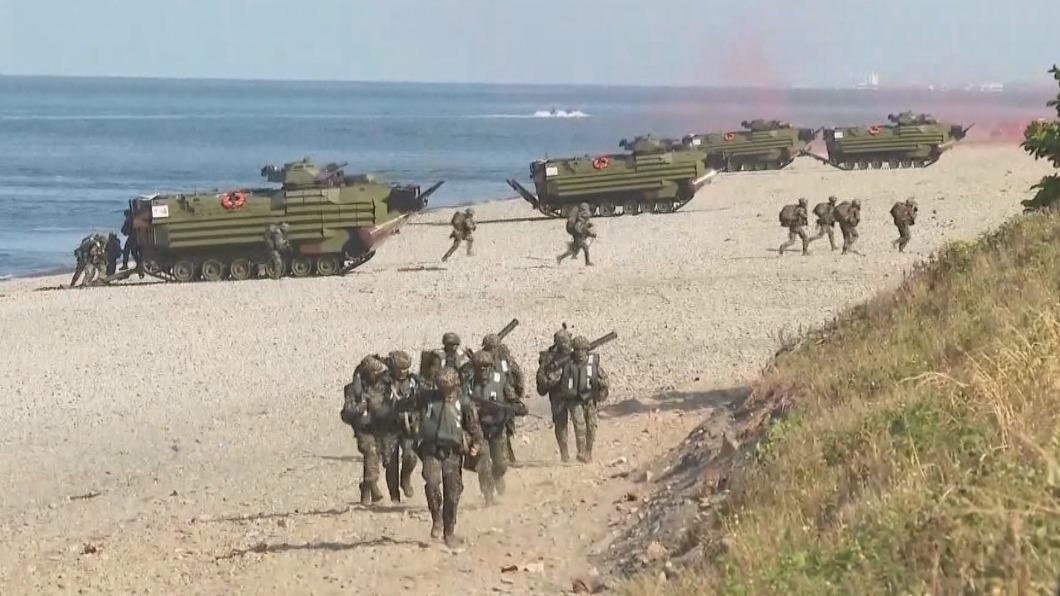Taiwan Puts Military on Alert Amid Chinese Exercises

Taiwan reacts to Chinese military exercises with heightened alertness, prompting concerns over regional stability. Tensions rise as President Lai Ching-te emphasizes defense while urging dialogue with Beijing, amidst international condemnation and support.
Taiwan scrambled jets and put its missile, naval, and land units on alert Thursday in response to Chinese military exercises around the self-governing island. These exercises coincide with the inauguration of Taiwan's new president earlier this week.
China's military announced that the two-day exercises were a punishment for what it described as separatist forces in Taiwan seeking independence. Beijing claims Taiwan as part of its national territory and regularly sends navy ships and warplanes into the Taiwan Strait to pressure Taiwan's defenses and intimidate its citizens, who overwhelmingly support de facto independence.
Taiwan's Defense Ministry condemned the exercises, labeling them as "irrational provocation" that threatens regional peace and stability. The ministry emphasized that while Taiwan seeks no conflict, it will not shy away from defending itself.
"This pretext for conducting military exercises not only does not contribute to peace and stability across the Taiwan Strait but also shows its hegemonic nature at heart," the ministry stated.
In his inauguration address on Monday, President Lai Ching-te urged Beijing to halt its military intimidation and pledged that Taiwan would "neither yield nor provoke" in dealing with China.
"Facing external challenges and threats, we will continue to maintain the values of freedom and democracy," Lai said during a visit to a marine base in Taoyuan, south of Taipei, on Thursday. While he did not directly mention China's actions, he noted that international society is concerned about Taiwan's security due to its critical role in global supply chains for advanced computer chips and as a democratic stronghold against China's influence in the Asia-Pacific region.
Lai has expressed a desire for dialogue with Beijing while maintaining Taiwan's current status and avoiding conflicts that could involve its main ally, the United States, and regional partners like Japan and Australia.
The Nationalist Party (KMT), generally seen as pro-China, also condemned Beijing's actions. The KMT urged China to exercise restraint, cease unnecessary maneuvers, and avoid escalating conflict in the Taiwan Strait, highlighting the importance of maintaining peace and development between the sides.
The Chinese People's Liberation Army's Eastern Theater Command described the exercises as a test of their navy and air force capabilities, as well as their joint strike abilities. The command stated that the drills are a "powerful punishment" for separatist forces in Taiwan and a warning to external forces against interference and provocation.
The PLA released a map showing the exercise area surrounding Taiwan at five different points, including near the outlying islands of Matsu and Kinmen, which are closer to the Chinese mainland.
China's coast guard also conducted law enforcement drills near islands close to the Taiwanese-controlled groups of Kinmen and Matsu.
In response to the Chinese exercises, U.S. Marine Corps Lt. Gen. Stephen Sklenka, deputy commander of the U.S. Indo-Pacific Command, called on Asia-Pacific nations to condemn China's military actions. Speaking in Australia, Sklenka emphasized the importance of regional nations joining the U.S. in publicly condemning these actions to have a stronger impact.
Japan's Foreign Minister Yoko Kamikawa, visiting the U.S., reiterated Japan's support for Taiwan, describing it as an important partner that shares values such as freedom, democracy, and the rule of law. She stressed the significance of maintaining peace in the Taiwan Strait, a vital waterway for global shipping, during her talks with U.S. Secretary of State Antony Blinken.
Taiwan's strategic importance extends beyond regional politics. The island is a critical player in the global semiconductor industry, producing advanced chips essential for various technologies. This makes the stability and security of Taiwan a matter of international concern, particularly for countries reliant on these technological components.
The current tensions underscore the fragile balance in the Taiwan Strait, where military posturing by China frequently tests Taiwan's resolve and the international community's response. As Taiwan continues to develop its defense capabilities, it also seeks to strengthen diplomatic ties and security assurances from allies to deter potential aggression.


